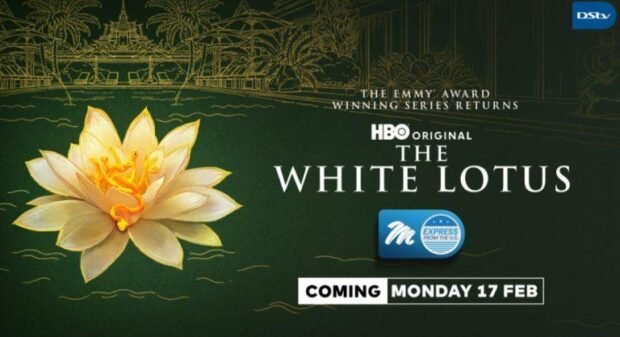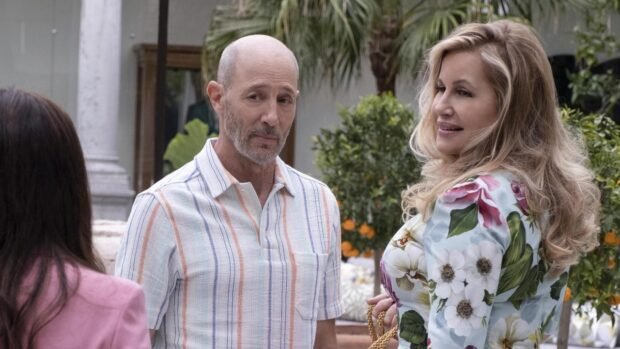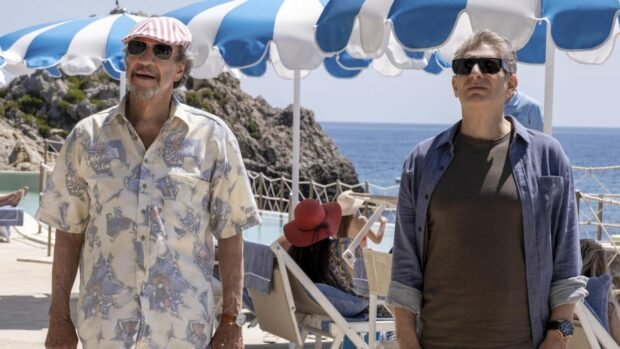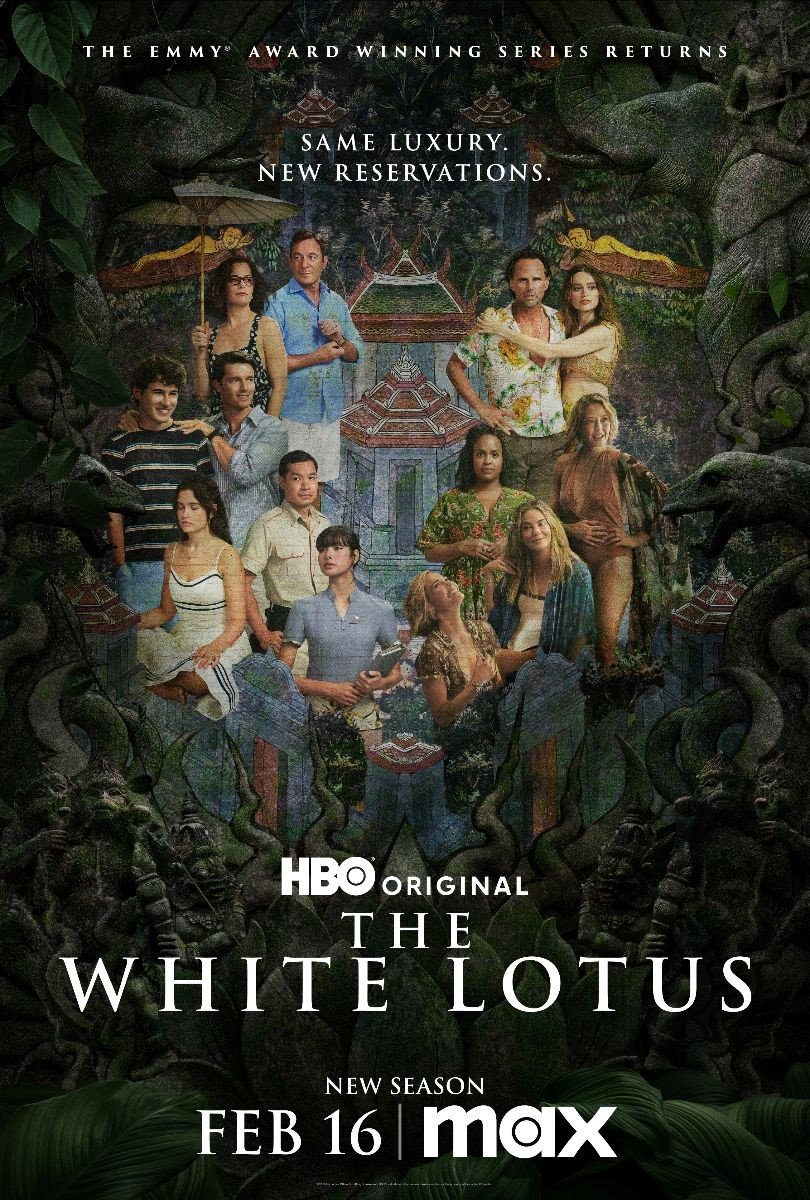Image Source: http://imdb.com/title/tt13406094/reviews/IMDB

Image Credit: morethanfoodmag.com
In recent days, HBO’s The White Lotus Hype
has become a cultural phenomenon, captivating audiences with its sharp satire, intricate character studies, and lush cinematography. The show, created by Mike White, has garnered critical acclaim, numerous awards, and a dedicated fanbase. However, as with any piece of media that achieves widespread popularity, questions arise about whether the hype is truly deserved or if it’s merely a product of clever marketing, timing, and the echo chamber of social media. Is The White Lotus as groundbreaking as it’s made out to be, or is its success overblown? Let’s dive into the reasons behind the show’s hype and examine whether it’s justified or if the buzz is, in fact, fake.
The Allure of Satire and Social Commentary

Image Credit:https://www.hbo.com
One of the key reasons The White Lotus has resonated with audiences is its biting satire and incisive social commentary. The show holds a mirror up to the wealthy elite, exposing their hypocrisy, privilege, and moral decay. Set in luxurious resorts, the series explores themes of class, power, race, and gender, often through the lens of dark comedy. For many viewers, this feels refreshing and timely, especially in an era of increasing wealth inequality and social unrest.
However, some critics argue that the show’s commentary isn’t as profound as it seems. While it tackles important issues, it often does so in a way that feels superficial or heavy-handed. The characters, though well-acted, can come across as caricatures rather than fully fleshed-out individuals. The wealthy guests are almost universally unlikable, and the staff members are either victims or complicit in the system. This lack of nuance can make the show’s social critique feel one-dimensional, relying on stereotypes rather than offering a deeper exploration of its themes.
Moreover, The White Lotus isn’t the first show to tackle these topics. Series like Succession, Big Little Lies, and even Downton Abbey have explored similar terrain, often with more complexity and subtlety. While The White Lotus has its own unique voice, its approach to social commentary isn’t necessarily groundbreaking. This raises the question: is the show’s acclaim due to its originality, or is it simply riding the wave of a broader cultural moment?
The Power of Aesthetic and Atmosphere
Another factor contributing to The White Lotus hype is its impeccable aesthetic. The show is a visual feast, with stunning locations, lavish set designs, and a dreamy, almost hypnotic score. The opening credits alone have become iconic, with their haunting music and surreal imagery setting the tone for the series. This attention to detail creates an immersive experience that draws viewers in and keeps them hooked.
But is style overshadowing substance? Some argue that the show’s aesthetic appeal is a distraction from its weaker elements, such as its predictable plot twists and occasionally uneven pacing. The first season, for example, relied heavily on its mystery structure, but the resolution felt underwhelming to some viewers. Similarly, the second season, while visually stunning, was criticized for its meandering storyline and lack of focus. In both cases, the show’s beauty and atmosphere may have masked its narrative shortcomings, leading to an inflated perception of its quality.
The Role of Star Power and Performances

Image Credit:https://www.hbo.com
The White Lotus boasts an impressive ensemble cast, featuring talented actors like Jennifer Coolidge, Murray Bartlett, Aubrey Plaza, and Theo James. Their performances have been widely praised, with Coolidge in particular earning accolades for her portrayal of the eccentric and tragic Tanya McQuoid. The chemistry between the actors and their ability to bring depth to their characters have undoubtedly contributed to the show’s success.
That said, star power can sometimes overshadow the actual content of a show. The presence of beloved actors can generate buzz and attract viewers, even if the material itself is uneven. In the case of The White Lotus, the performances are undeniably strong, but they may also be propping up a narrative that, on its own, isn’t as compelling. This raises the question: would the show be as popular if it didn’t have such a high-profile cast?
The Influence of Social Media and Cultural Timing
In today’s media landscape, social media plays a significant role in shaping public perception. The White Lotus has benefited from a constant stream of memes, think pieces, and online discussions, which have amplified its reach and cemented its status as a must-watch show. The series has become a cultural touchstone, with fans dissecting every scene and debating its themes on platforms like Twitter, TikTok, and Instagram.
However, this kind of online hype can sometimes be misleading. Social media tends to amplify certain narratives, creating a feedback loop that makes a show seem more important or groundbreaking than it actually is. In the case of The White Lotus, the buzz around the show may have inflated its reputation, leading some viewers to approach it with unrealistic expectations. When the hype is this intense, it’s easy to lose sight of the show’s flaws and overstate its impact.
Additionally, The White Lotus arrived at a time when audiences were craving escapism with a bite. The COVID-19 pandemic left many people yearning for stories that allowed them to vicariously experience luxury and travel while also grappling with deeper societal issues. The show’s timing was perfect, tapping into a collective desire for both indulgence and introspection. But this cultural moment may have contributed to its success as much as the show’s actual quality, raising questions about whether it will stand the test of time.
The Verdict by The Story Mojo: The White Lotus Hype or Substance?
So, is The White Lotus hype fake? The answer isn’t black and white. The show has undeniable strengths, from its sharp writing and stellar performances to its breathtaking visuals and timely themes. It’s a well-crafted series that has struck a chord with audiences and critics alike. However, its flaws—such as its occasional lack of nuance, reliance on stereotypes, and uneven storytelling—suggest that the hype may be somewhat inflated.
Ultimately, The White Lotus is a product of its time, benefiting from a combination of strong marketing, cultural relevance, and social media buzz. While it’s certainly not a bad show, its reputation as a groundbreaking masterpiece may be overblown. The hype isn’t entirely fake, but it’s worth approaching the series with a critical eye and recognizing that its success is as much about timing and presentation as it is about the content itself.
In the end, whether The White Lotus lives up to the hype is a matter of personal opinion. For some, it’s a brilliant and thought-provoking exploration of modern society. For others, it’s an entertaining but ultimately shallow drama that leans too heavily on its aesthetic and star power. Regardless of where you stand, one thing is clear: The White Lotus has cemented its place in the cultural zeitgeist, and its legacy will be debated for years to come.

The White Lotus Hype: Is It Fake?
Lifestyle 40 Admin February 13, 2025
Admin
16 Posts
Image Source: http://imdb.com/title/tt13406094/reviews/IMDB
Image Credit: morethanfoodmag.com
Table of Contents
In recent days, HBO’s The White Lotus Hype
has become a cultural phenomenon, captivating audiences with its sharp satire, intricate character studies, and lush cinematography. The show, created by Mike White, has garnered critical acclaim, numerous awards, and a dedicated fanbase. However, as with any piece of media that achieves widespread popularity, questions arise about whether the hype is truly deserved or if it’s merely a product of clever marketing, timing, and the echo chamber of social media. Is The White Lotus as groundbreaking as it’s made out to be, or is its success overblown? Let’s dive into the reasons behind the show’s hype and examine whether it’s justified or if the buzz is, in fact, fake.
The Allure of Satire and Social Commentary
Image Credit:https://www.hbo.com
One of the key reasons The White Lotus has resonated with audiences is its biting satire and incisive social commentary. The show holds a mirror up to the wealthy elite, exposing their hypocrisy, privilege, and moral decay. Set in luxurious resorts, the series explores themes of class, power, race, and gender, often through the lens of dark comedy. For many viewers, this feels refreshing and timely, especially in an era of increasing wealth inequality and social unrest.
However, some critics argue that the show’s commentary isn’t as profound as it seems. While it tackles important issues, it often does so in a way that feels superficial or heavy-handed. The characters, though well-acted, can come across as caricatures rather than fully fleshed-out individuals. The wealthy guests are almost universally unlikable, and the staff members are either victims or complicit in the system. This lack of nuance can make the show’s social critique feel one-dimensional, relying on stereotypes rather than offering a deeper exploration of its themes.
Moreover, The White Lotus isn’t the first show to tackle these topics. Series like Succession, Big Little Lies, and even Downton Abbey have explored similar terrain, often with more complexity and subtlety. While The White Lotus has its own unique voice, its approach to social commentary isn’t necessarily groundbreaking. This raises the question: is the show’s acclaim due to its originality, or is it simply riding the wave of a broader cultural moment?
The Power of Aesthetic and Atmosphere
Another factor contributing to The White Lotus hype is its impeccable aesthetic. The show is a visual feast, with stunning locations, lavish set designs, and a dreamy, almost hypnotic score. The opening credits alone have become iconic, with their haunting music and surreal imagery setting the tone for the series. This attention to detail creates an immersive experience that draws viewers in and keeps them hooked.
But is style overshadowing substance? Some argue that the show’s aesthetic appeal is a distraction from its weaker elements, such as its predictable plot twists and occasionally uneven pacing. The first season, for example, relied heavily on its mystery structure, but the resolution felt underwhelming to some viewers. Similarly, the second season, while visually stunning, was criticized for its meandering storyline and lack of focus. In both cases, the show’s beauty and atmosphere may have masked its narrative shortcomings, leading to an inflated perception of its quality.
The Role of Star Power and Performances
Image Credit:https://www.hbo.com
The White Lotus boasts an impressive ensemble cast, featuring talented actors like Jennifer Coolidge, Murray Bartlett, Aubrey Plaza, and Theo James. Their performances have been widely praised, with Coolidge in particular earning accolades for her portrayal of the eccentric and tragic Tanya McQuoid. The chemistry between the actors and their ability to bring depth to their characters have undoubtedly contributed to the show’s success.
That said, star power can sometimes overshadow the actual content of a show. The presence of beloved actors can generate buzz and attract viewers, even if the material itself is uneven. In the case of The White Lotus, the performances are undeniably strong, but they may also be propping up a narrative that, on its own, isn’t as compelling. This raises the question: would the show be as popular if it didn’t have such a high-profile cast?
The Influence of Social Media and Cultural Timing
In today’s media landscape, social media plays a significant role in shaping public perception. The White Lotus has benefited from a constant stream of memes, think pieces, and online discussions, which have amplified its reach and cemented its status as a must-watch show. The series has become a cultural touchstone, with fans dissecting every scene and debating its themes on platforms like Twitter, TikTok, and Instagram.
However, this kind of online hype can sometimes be misleading. Social media tends to amplify certain narratives, creating a feedback loop that makes a show seem more important or groundbreaking than it actually is. In the case of The White Lotus, the buzz around the show may have inflated its reputation, leading some viewers to approach it with unrealistic expectations. When the hype is this intense, it’s easy to lose sight of the show’s flaws and overstate its impact.
Additionally, The White Lotus arrived at a time when audiences were craving escapism with a bite. The COVID-19 pandemic left many people yearning for stories that allowed them to vicariously experience luxury and travel while also grappling with deeper societal issues. The show’s timing was perfect, tapping into a collective desire for both indulgence and introspection. But this cultural moment may have contributed to its success as much as the show’s actual quality, raising questions about whether it will stand the test of time.
The Verdict by The Story Mojo: The White Lotus Hype or Substance?
So, is The White Lotus hype fake? The answer isn’t black and white. The show has undeniable strengths, from its sharp writing and stellar performances to its breathtaking visuals and timely themes. It’s a well-crafted series that has struck a chord with audiences and critics alike. However, its flaws—such as its occasional lack of nuance, reliance on stereotypes, and uneven storytelling—suggest that the hype may be somewhat inflated.
Ultimately, The White Lotus is a product of its time, benefiting from a combination of strong marketing, cultural relevance, and social media buzz. While it’s certainly not a bad show, its reputation as a groundbreaking masterpiece may be overblown. The hype isn’t entirely fake, but it’s worth approaching the series with a critical eye and recognizing that its success is as much about timing and presentation as it is about the content itself.
In the end, whether The White Lotus lives up to the hype is a matter of personal opinion. For some, it’s a brilliant and thought-provoking exploration of modern society. For others, it’s an entertaining but ultimately shallow drama that leans too heavily on its aesthetic and star power. Regardless of where you stand, one thing is clear: The White Lotus has cemented its place in the cultural zeitgeist, and its legacy will be debated for years to come.
Tagged as:
Influence of Social Media Role of Star Power Social Commentary The White Lotus The White Lotus Hype
About the author
Admin
More posts Follow
Be the first to leave a comment
Previous
Top 10 Florists in Malaysia for Valentine’s Day 2025
Lifestyle
Next
World’s Best cities for culture in 2025
Arts & Culture
Recent Posts
Recent Comments